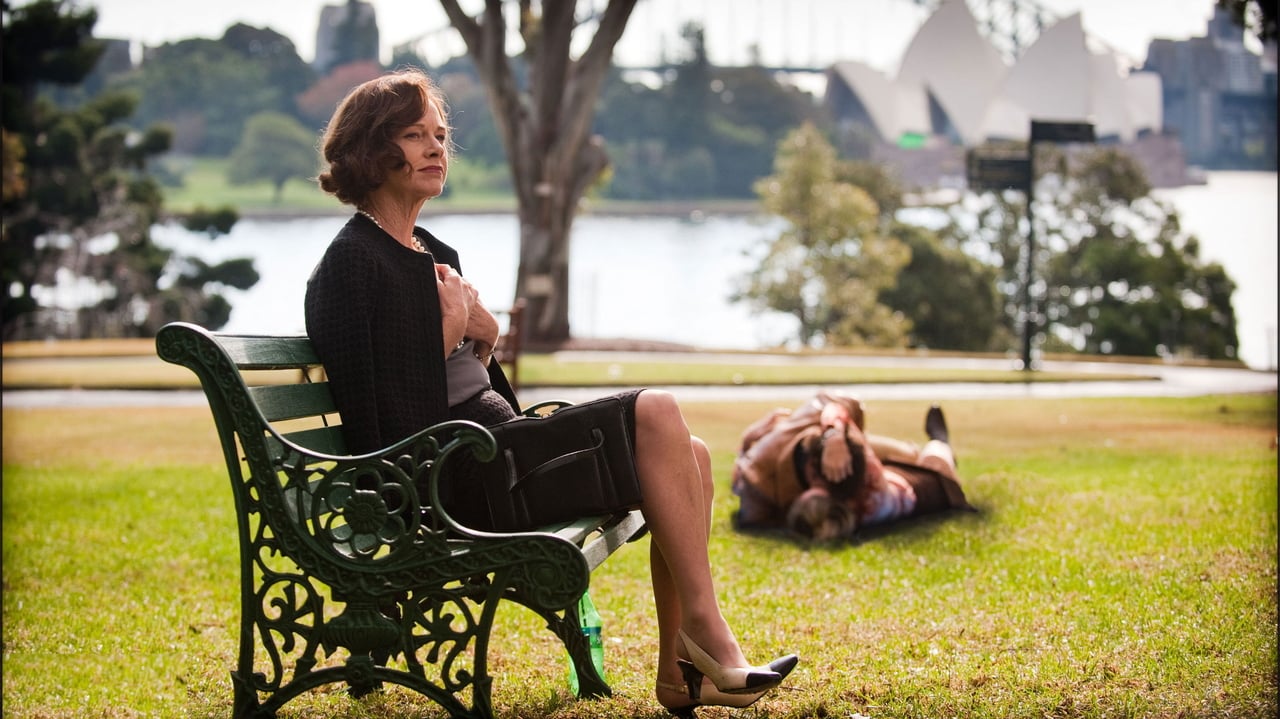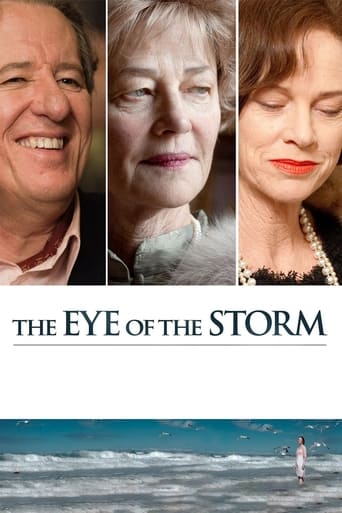

Rather humourous in the first half the whole thing turns dramatic when the mother legs get closer to the tomb. I found this very well played.
... View MoreAlright so it's a little 'literary' and the 70s it is ostensibly set in are a little wobbly (it's like you have to remind yourself periodically it's not contemporary), but this unusual family drama is full of surprises and twists as well as a rich and rewarding script that exposes and confronts all the petty squabbles and festering resentments of many a family, and which typically come to a head when a patriarch or matriarch (in this case, Charlotte Rampling) is on the way out. She is serene and strangely humorous, as if she's made her peace and has new insight, while children Basil (Geoffrey Rush) and Dorothy (Judy Davis) continue to clash egos, because both of them have them in spades! The kind of film you can revisit and probably find more each time.
... View MoreI can't see anyone under 50 even being remotely interested in this "Patrick White In Drag" type film (to quote another IMDb user). The 2 hours reminded me of those hours spent in non air- conditioned portable classrooms (for me, in the late 60's) wading through arcane English literature classes wherein Patrick White was regarded as "worthy"...or "significant"."Storm" has all the features we have come to expect from "quality" Australian film-making - a great cast, polished direction, impeccable production values etc etc ... but it's as dull and disconnected as the world White writes about. Who really gives a stuff about an imploding grazing family presided over by a a dying monster ... nominally set in the 1970s, but really (as in most of White's writing) set in the 1930s? On a $15m budget ... it probably needs a world wide gross of $100m to break even. Ye Gods - who green-lit this? How much Government funding went into it? (Its $1.6m domestic gross should just about pay for the Prints and Advertising" budget & little more).We have a bustling new generation - make that two generations - of film-makers pushing the envelope and making "Animal Kingdom", "Daybreakers", "Red Dog" etc who seem to be at least aware of their audience and their responsibility for getting a return for their investors. Film-making is an expensive business ... and "Storm" is just a sad old melodrama, outdated, over-priced and isolated from the real world, doomed to fail financially. I can understand why audiences congratulate themselves for having sat through it ("splendid and intelligent" - another IMDb post), but it's just an Anglo middle class statement from people who are longing for the days of "Careful He Might Hear You" or "The Devil's Playground".At least the English Class in those old portables only lasted 50 minutes...
... View MoreIt quite simply is a miracle of old money that this film exists. Not since the 'International cinema days' of the 80s has Australian film making produced such a splendid and intelligent film. If your cinema going has included such Australian quality films as CAREFUL HE MIGHT HEAR YOU or WE OF THE NEVER NEVER or PHAR LAP or MY BRILLIANT CAREER, or you yearn for the qualities of those, then EYE OF THE STORM is for you. The deep credits of 'extra thanks' detail who put money up for this, and every dollar of the $15m spent is on screen. Also reminiscent of great WB dramas of the 40s or even as literary as ALL ABOUT EVE, this new film from Fred Schepisi is prestige film making and a presentation of emotional intelligence of an era and a lifestyle that still exists in old moneyed mansions and bitter family brittleness. I live across the road from the avenue of Centennial Park mansions where the film is set, and I can vouch that there are streets of them in Sydney. Geoffrey Rush and Judy Davis are impeccable and with Charlotte Rampling as Mother/monster make a three headed hydra of drama. The art direction and set design is as much a feature of the film as is Patrick White's bitter pill dialogue and the acting and casting itself. A feast for stage drama and theatre lovers, EYE OF THE STORM is (hooray!) an Australian film that is intelligent bitter and absorbing.
... View More